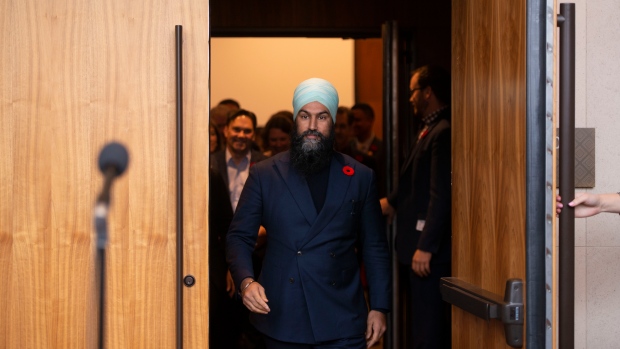Will NDP-Liberal co-operation produce a real pharmacare program for Canadians?
NDP Leader Jagmeet Singh says his party’s first act when Parliament returns will be to introduce a private member’s bill to create a universal pharmacare system.
A consensus is developing that the new Liberal minority government needs to put the implementation of a national pharmacare program at the top of its to-do list.
“We need to stop studying this issue,” says Carleton University political economist Marc-Andre Gagnon. “This issue has been studied way more than it should have been. And it is very clear in terms of which model is the most efficient and this is universal pharmacare.
The NDP and Green Party included universal pharmacare in their platforms, with the Liberals committed to some sort of pharmacare but not neccessarily a universal, publicly funded program. The Conservatives said they would increase health spending but not implement a pharmacare program.
A recent report from the parliamentary budget officer said a universal program for prescription medications would save $4.2 billion from the estimated $28.5 billion spent annually on prescription drugs.
Another report from the Advisory Council on the Implementation of National Pharmacare released in June mapped out a national program that would cost taxpayers an estimated $15.3 billion in 2027.
Canada is the only industrialized country with universal medicare that does not provide coverage for medications, but those same medications are among the highest priced per capita in the world.
As a result, nearly 10 per cent of Canadians who don’t have private health coverage can’t afford the drugs prescribed to them and are having to choose between food and medication.
Of the $28.5 billion spent on prescription drugs in Canada in 2015, 46 per cent came from public insurance plans, 37 per cent from private insurance, and 17 per cent (representing 4.7 million people) was paid by individuals.
Gagnon says Canada has a “fragmented system for drug coverage” that hinders its ability to negotiate lower rates with pharma companies.
He says there are two main issues contributing to higher prices. The first is that far too many new and expensive drugs have been introduced into the market that don’t offer anything different than the drugs already there. And secondly, each of the more than 100,000 private insurance plans in the country have to negotiate their own rates for pharmaceutical drugs. Gagnon says a national pharmacare plan would negotiate as one entity and buy in bulk.
The big policy question: dealing with ‘gaps’ in coverage or creating a universal, publicly funded program
Leader Jagmeet Singh announced Wednesday that his party’s first act when Parliament returns will be to introduce a private member’s bill to create a universal pharmacare system.
But while a majority of health policy experts support a universal program, there is no political consensus on this. In fact, the big policy question still to be decided is whether the new pharmacare plan will be a publicly funded, universal plan or a plan that covers only those that currently lack drug coverage.
The NDP’s plan coming into the minority government is for a universal and comprehensive national pharmacare program to be fully implemented by April, 2020.

